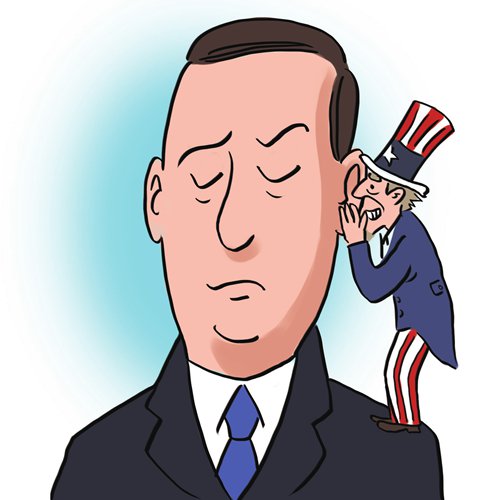
Illustration: Liu Rui/GT
Vietnam and Spanish oil giant Repsol suspended their gas-drilling in the South China Sea in July after China's intervention. Some Westerners expressed their disappointment at the peaceful resolution of the issue. The Washington Post mocked Hanoi for "putting economic cooperation or alleged communist solidarity above questions of national pride.""With Vietnam's closed political system keeping diplomatic machinations a secret, most people - even experts, by their own admission - simply don't know what's happening, providing the perfect atmosphere for wild speculation," the Washington Post claimed.
It also blamed "a visibly diminished US presence for giving Beijing an opportunity to act behind the scenes," adding that of the 10 countries in ASEAN drifting "in a pro-China direction" since US President Donald Trump assumed office, "Vietnam is the last member openly pushing for a tougher stance on China's expansion in the South China Sea," but "is now publicly isolated on the issue of using international law to push back against China."
The Washington Post obviously hoped to see Vietnam keep standing against China, and many Westerners are eager to see Vietnam playing a leading role in resisting China in the South China Sea. If Hanoi does so as expected, it would be reduced to a chess piece for the US and Japan to gain geopolitical advantage, with so-called Western moral support and meager aids in return.
But Vietnam is smarter. Despite disputes in the South China Sea, Vietnam is fully aware of the significance of managing the divergences. Hanoi and Beijing have reached consensus on strengthening party-to-party communications to prevent maritime disputes from going out of control and undermining bilateral relations. The peaceful solution to the gas-drilling issue reflects the maturity of the Sino-Vietnamese relationship.
But it has to be admitted that Western support for Vietnam to take a tough stance against China on maritime issues is somewhat appealing to Hanoi. Former US president Barack Obama's strategy of rebalancing to the Asia-Pacific encouraged regional countries to strike a balance between China and the US, and use Washington's backing as a lever to bargain for more benefits from China.
However, such attempts by some countries have proved to be futile. The Philippines, which had been one of the most active countries in confronting China, lifted a rock only to drop it on its own toes. As a result, Philippine President Rodrigo Duterte is determined to stop playing the role the US and Japan designed for the country.
More importantly, as China hasn't intimidated any neighboring country or promoted regional hegemony, countries in the region have no reason to stand up against China. Duterte's full-around cooperation with China has brought much more realistic benefits to his country than his predecessor Benigno Aquino III. Vietnam has made a more rational choice on the gas-drilling issue after carefully weighing the pros and cons of cooperating with Beijing.
China and Vietnam are friendly neighbors. Economically, Beijing is Hanoi's largest trading partner. Politically, both are socialist countries led by the Communist Party, and share a lot in common. Hanoi is unwilling to rival Beijing strategically as a pawn for the US to contain China in the South China Sea.
The maritime disputes between Beijing and Hanoi are unlikely to be solved in the short term. The two countries should prevent territorial disputes from affecting their growing trade and sizable cultural exchanges. Beijing-Hanoi comprehensive strategic partnership should transcend these disputes.
Some Americans attempt to use "smart power" to pit Hanoi against Beijing and benefit from this. The West that doesn't like the Vietnamese regime is eager to see frictions between the two Communist countries. Comprehensive cooperation can bring more benefits than maritime disputes do to China and Vietnam, and the two countries should prevent their friendly cooperation from being affected by external factors.
The article is an editorial of the Chinese edition of the Global Times Monday. opinion@globaltimes.com.cn
